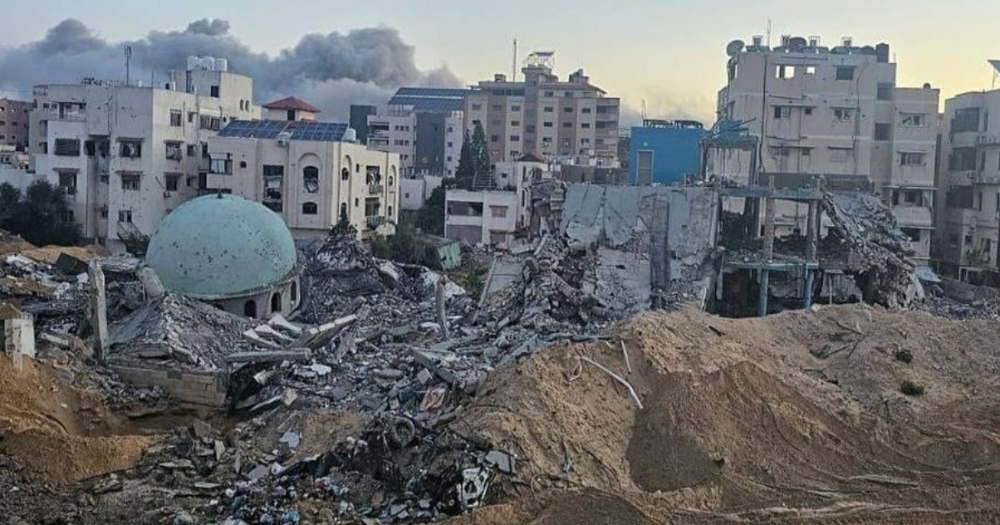The United Nations Security Council (UN) is set to vote on Mar. 22, 2024 on the United States' (U.S.) draft resolution on the Israel-Hamas war.
The U.S. will submit the draft on the same day, stressing the necessity of an "immediate and sustained ceasefire" in Gaza, and an Israel-Hamas hostage deal, Reuters reported.
The U.S.' draft resolution, however, is a departure from its usual stance, and it has, in recent days, been applying pressure on Israel.
The U.S. traditionally shields Israel, its longtime ally, at the UN, and has vetoed three draft resolutions, two of which would have demanded an immediate ceasefire, and abstained twice in November and December 2023, after the language had been "watered down".
U.S. draft resolution
The U.S. draft resolution, seen and reported by AFP and Reuters, emphasised the importance of an "immediate and sustained ceasefire" lasting roughly six weeks that would protect civilians, allow for the delivery of humanitarian assistance, and alleviate humanitarian suffering.
The resolution, built based on ceasefire negotiations brokered by the U.S., Egypt and Qatar, stated that the six-week truce would be used to intensify efforts in pursuing "lasting peace".
The resolutions passed by the UN Security Council are legally binding, as opposed to those passed by the UN General Assembly.
U.S. Secretary of State Antony Blinken said in Saudi Arabia on Mar. 20 that the six-week truce would "create the conditions to have a lasting, enduring ceasefire".
Blinken is on a tour in the Middle East to hold talks about the Israel-Hamas war — his sixth since Hamas launched an attack in Israel on Oct. 7, 2023.
Blinken said in Egypt on Mar. 21 that he believed talks in Qatar, which are focused on a six-week truce and the release of 40 Israeli hostages and hundreds of jailed Palestinians, could still reach a agreement.
The main sticking point has been that Hamas says it will release hostages only as part of a deal that would end the war, while Israel says it will discuss only a temporary pause.
He arrived in Israel on Mar. 22, where he will meet with Prime Minister Benjamin Netanyahu.
Vote results uncertain
A resolution needs at least nine out of 15 votes in favor and no vetoes by the US, France, UK, Russia or China in order to pass in the UN Security Council.
AFP reported diplomatic sources saying that the U.S. has enough votes for its resolution to be adopted, but there remains the possibility of Russia using its veto.
Russia's Deputy Ambassador to the UN Dmitry Polyanskiy noted on Mar. 21 that the text in the U.S.-drafted resolution is "weak" as it does not explicitly call for a ceasefire, but instead states that a ceasefire is imperative.
He said: "We are not satisfied with anything which doesn't call for an immediate ceasefire."
Alternate draft
In the meantime, several non-permanent Security Council members have circulated their own draft project, demanding "an immediate humanitarian ceasefire for the month of Ramadan" and the immediate release of all hostages, as seen and reported by AFP.
This draft "will come to the table and [be] put to the vote" France's Ambassador to the UN Nicolas de Riviere said, if the U.S. resolution is rejected.
If, however, the U.S. resolution is adopted, it would mark the first time the Security Council has specifically condemned the Hamas attack.
The resolution stated that it "rejects any attempt at demographic or territorial change in Gaza" and also condemns "all acts of terrorism, including the Hamas-led attacks of Oct. 7" against Israel, AFP reported.
Divided UNSC
However, the outcome of the votes for both texts are uncertain.
AFP noted that the Security Council has been largely divided on the Israeli-Palestinian issue for years, only managing to adopt two resolutions — largely focused on humanitarian efforts — in the five months since Oct. 7.
Even then, humanitarian assistance into Gaza has been insufficient, with around half of the population — 1.1 million people —expected to experience a man-made famine at any time between now to mid-July 2024, the Integrated Food Security Phase Classification (IPC) said on Mar. 18.
According to the BBC, a famine occurs when a country has such a severe food shortage that its population faces acute malnutrition, starvation, or death.
Top image from @eye.on.palestine/Instagram

If you like what you read, follow us on Facebook, Instagram, Twitter and Telegram to get the latest updates.



